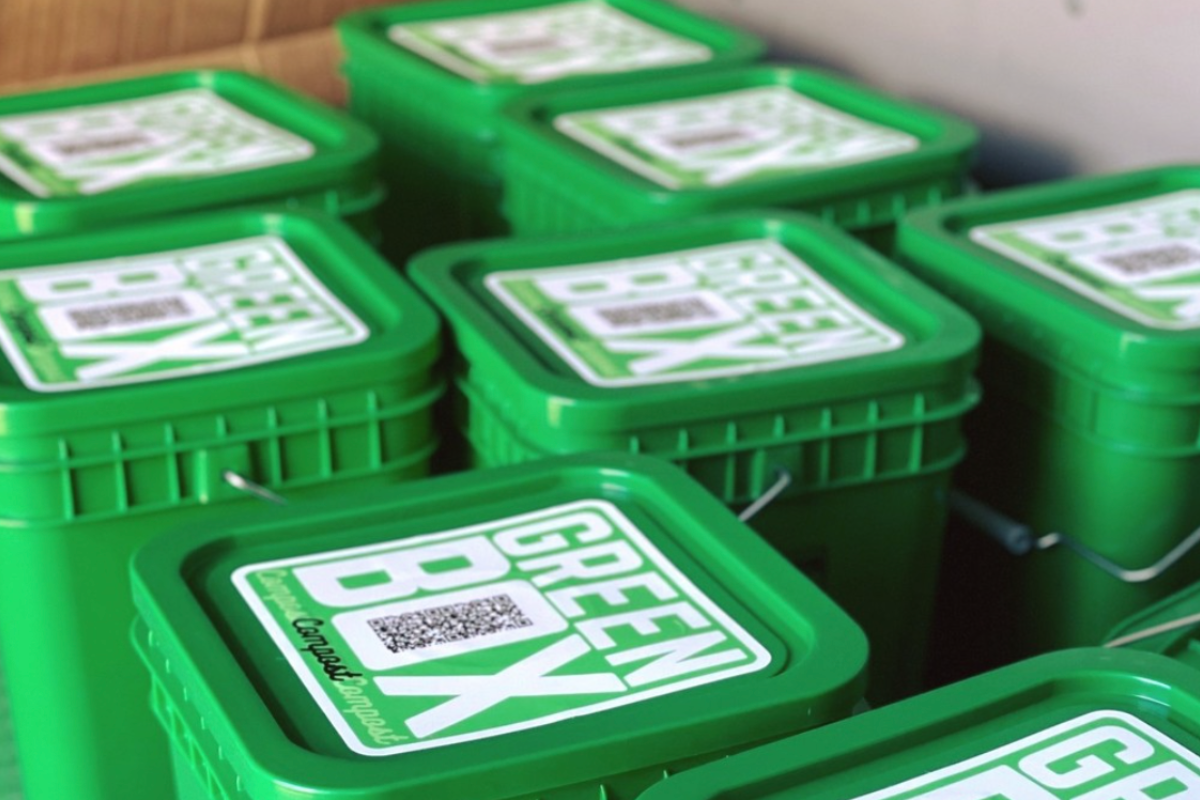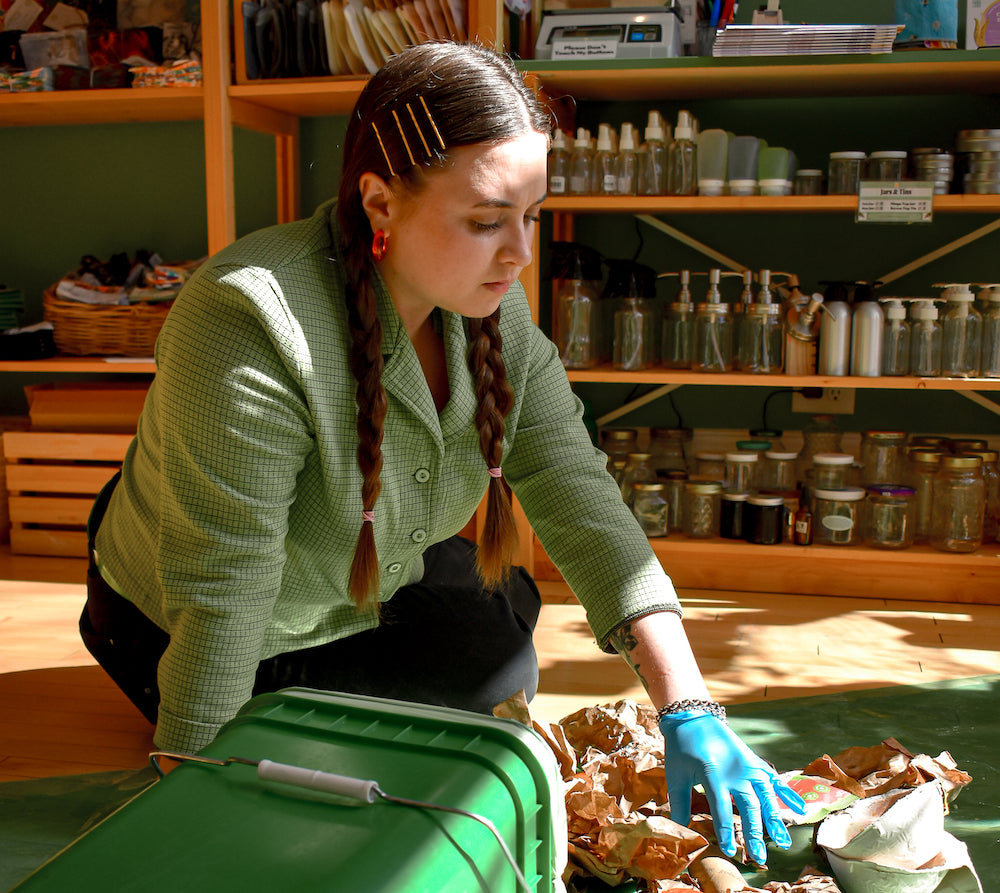We sat down with our friend Esai at Green Box Compost to bust some common myths about composting!
Myth: Only fruits and vegetables can be composted.
This is actually not true. Here at Green Box we can take anything that goes on your plate; meat, dairy, breads, grains. The only thing we can't take is anything in heavy excess of liquids like oils or milk. Our process is really efficient, it [the composter] heats up and introduces air into the vessel. Our vessel is able to handle meat, dairy, bones, in addition to your fruits and vegetables.
Myth: Composting is smelly and attracts pests.
If you do it the correct way, your compost actually doesn't smell at all. At Green Box we use an in vessel [aerobic] composter, within the vessel we introduce air which makes that aerobic process a little bit more efficient.
Aerobic composting is the decomposition of organic matter using microorganisms that require oxygen.
When decomposition occurs without oxygen, also known as anaerobic decomposition, methane is released as a by-product. Anaerobic decomposition also produces sulfur compounds, which is where that rotten egg smell comes from. By introducing oxygen to compost, like Green Box does, or by simply turning an at home compost pile, it allows microorganisms to thrive and the only by-products are heat, water and a small amount of carbon dioxide.
When aerobic decomposition occurs, the compost breaks down and doesn't release smells. You know composting is wrong when compost becomes anaerobic. Anaerobic decomposition creates the environment for smells and pests to be attracted to your compost pile in your backyard.
Myth: If it looks compostable, it is!
This is actually a huge myth that we try to educate our members on all the time! A lot of labels will say “biodegradable” and you might think that that's compostable, but usually that doesn't mean anything. A lot of things are biodegradable, the question is: just how long does that actually take?
Another label that you'll see is “commercially compostable”. Some of those items we can take, but it definitely depends on where it comes from and what labels it has attached to it. When we're looking for packaging that says compostable, we're looking for two main certificates: one is BPI, and the other one is TUV Austria. When you see those two labels, you know we can compost it.
Sources: Green Box Compost, Global Composting Solutions, Compost Now, SMSC Organic Recycling Facility




